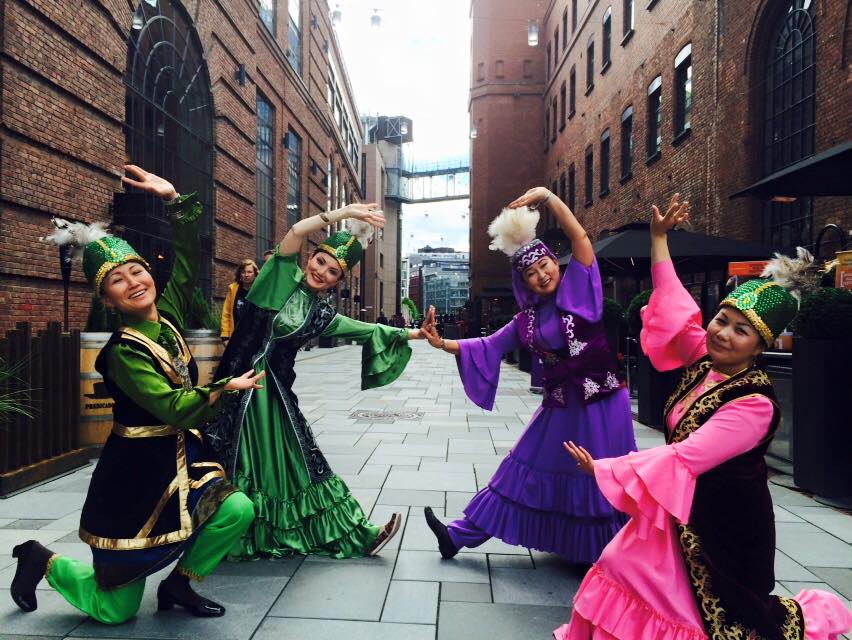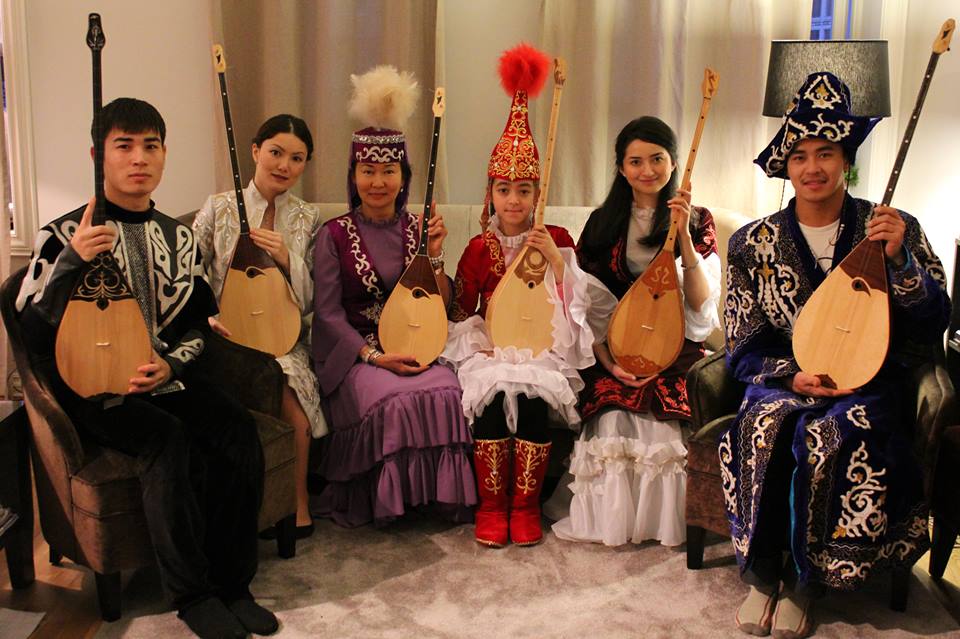ASTANA – The first Kazakhs apparently arrived in Norway as German prisoners of war during World War II, with some escapees able to join Norwegian guerrillas fighting the Nazi occupation. The Red Army subsequently liberated the country’s northeastern tip from the Nazis in the autumn of 1944. Since the 1960s, some ethnic Kazakhs have settled in the Northern European nation as part of the labour migration from Turkey and a few hundred remain in the country.
Today, most Norwegian Kazakhs are either members of mixed families, mainly women and their children, or those who found relatively permanent jobs in Norway’s affluent economy. Occasional attempts to bring the compatriots together saw little success until the Norwegian Kazakh Cultural Centre (Norsk-Kazakh Kultur Senter, or NKKS) was founded in 2011 by Almagul Kalelova, a choreography teacher at a high school in Oslo. She originally came to Norway in 2000 to study, then began working and finally settled in the city.
“At that time, it was a rare thing to meet a person from Kazakhstan in Norway. This changed over the years when students started to arrive to study in Norwegian universities and Kazakhs started to come under work contracts or as part of a united family. It was then when Almagul realised that a local organisation pursuing social and cultural interests between Norway and Kazakhstan should be founded,” said NKKS active member Saule Kudaybergenova in a recent interview with The Astana Times.
A nonprofit organisation, NKKS, is open to anyone who is interested in Kazakhstan, its culture, language and society. It also assists Kazakhstan citizens with their understanding of Norwegian social and cultural life.
Over the past years, together with the Embassy of Kazakhstan,which has been present in Oslo since 2004, NKKS has organised many musical events, such asperformances by Turan, a Kazakh ethnic band, and Naz Dance Academy from Astana. The organisation has its own stand representing Kazakh culture and music at the annual festival presentedby the Norwegian Cultural Association.

Saule Kudaybergenova, Aru Redondo, Almagul Kalelova and Alia Shakabaeva of the NKKS organisation pose in Norway.
In 2014, NKKS formed Silk Road, its own dombra music band, and since January created a dance group performing traditional folk dances.
“The highlight for this year should be the joint wish of the families with children where one of the parents is from Kazakhstan to meet on a monthly basis and teach children Kazakh music, history and language over delicious Kazakh dastarkhan (a traditional spread of food served on a low table). We have held several meetings already where children were taught about Kazakh ornaments, costumes and traditional games,” said Kudaybergenova,
NKKS members have big plans for the future, including setting up a summer camp where children will stage Kazakh fairy tales and learn the language, handcrafts, cooking, singing and dancing.
“The pilot project will be conducted soon in the Norwegian mountains with the confirmed participation from the families from Norway, Finland and the Netherlands. Other plans include meeting Kazakhs living outside of Kazakhstan and establishing a network with them,” Kudaybergenova said enthusiastically.


